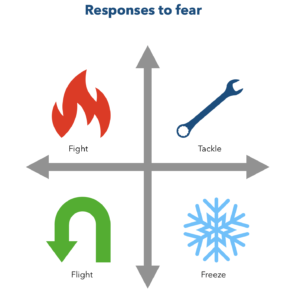Early in the morning, I got a call from a lawyer representing one of the parties in cross border mediation. “Would you consider changing the venue for our meeting?”, he asked.
Usually not a surprising demand. This time an expected one. We were about to meet in Milan, Italy which at the time being had changed in a COVID-19 outbreak spot. He suggested moving the mediation to Prague. This city of mine appeared to be an obvious choice. A safe place, easy to reach, geographically in the middle between the disputing parties, a place with mediation friendly legislature and well equipped with venues and hotels.
We have agreed to me suggesting this step to the other party. Yet before I have done it, the first coronavirus infected person was detected here in Prague.
Almost immediately, I got a new call from the same lawyer: “You know what, we would like to reconsider the venue once more…”
World in the Age of COVID
When there is going to be a search for the word of the year 2020, it will be a rather easy task – coronavirus being the obvious choice. The reader was probably not able to avoid frequent mentioning and news concerning the pandemic of COVID-19 disease in the last weeks. Yet the world’s public paid rather limited attention when its outbreak first appeared in Chinese Wuhan late in 2019. Many among my friends and colleagues said it to be just another, a bit more dangerous flu.

As from March 2020, Europe had become the new epicentre of this pandemic and this obviously caused a lot of troubles to the everyday life – the example of the cancelled mediation meeting being just one among thousands. The governments took rather serious precautions – there have been the closure of public and religious institutions, cancellation of cultural and sporting events and sealing of schools and shops. The majority of European states has ordered its citizens to stay at home in order to stop the disease from spreading. Unprecedented measures at an unprecedented age. The media and social networks are feeding us with every-minute updates and the separation and closure of shops and institutions are putting us in unfamiliar positions. To top it all, there is a serious threat of economic instability.
The tense situation gives birth to more conflicts and the appearance of fear within society.
Fear as Expected Response

And yet, the collective omnipresent fear forced me to think again and again about this feeling – for dealing with the fear of others should be an inseparable part of mediators’ professional life. Yet are we able to cope with the fear within us? For it is one thing to address dismay on our clients’ side of the fence and a completely different one to handle our own feeling. At the same time, fear is one of the most underestimated emotions – a vast majority of us will pretend not to be afraid… Yet try to remember, what was the last time you were afraid? When passing college exams? Before the first mediation session? When being at the dentist? Were you able to act rationally in those situations? Probably not.
Fight/flight/freeze
The COVID-19 pandemic gives us an unprecedented opportunity to study this emotion and go to its very core. During the evolution, fear proved to be a useful tool for surviving as it helped to initiate the famous survival responsive triad fight/flight/freeze also known as FFF reply. Those three encoded reactions were designed to mobilise our brain to fight an enemy, run from a landslide or freeze to hide from the bear. So far so good. The living proof this worked out is the fact we are still here.
The trouble is we do not always interpret the perceived situations correctly. In other words, our brain sometimes takes a safe situation for the dangerous one and stimulates incorrect responses to our body.
Why is this wrong? Because our body was constructed in a way that while we complexly profit from the situation of fear, the longstanding exposure to stress situation causes us serious health troubles. In other words, although we need a certain and changing level of stress all around the clock, if we face stress for a long time it might seriously harm us.
You will not Faint out of Fear, yet…
The physiological reaction to fear enabled us to act swiftly and our body was able to render better physical performance. This was thanks to so-called hyperventilation that manifests itself by an increase in blood pressure and more frequent heart beating. Blood is directed to the main muscles groups and, all-together in an anecdotical way, it is so diverted from the digestive system which explains a lot of unpleasant situation related to fear. By the way, the oxygen in our blood system might cause malaise and feeling we are about to faint. Yet, as expressed above, the fear is related to high blood pressure and thus, it is merely impossible to collapse out of fear although many novelists and filmmakers would try to persuade us otherwise.
Apart from the body replies, there are also cognitive changes – our brain focus on negative memories and the vision turns tunnellike. To make the situation worse, our ability to recognise the facial expression and to read the emotions of other people decrease. Those changes are in fact a reason, why every mediator has to be able to work with parties feeling fear. For this kind of change is enough to end any chance of reaching an agreement and reboot the relations.
Humans modulate fear by the process of cognition and learning. This is why we are able to judge our feeling as rational and appropriate in certain situations and irrational and inappropriate in different ones. While it is perfectly fine to be afraid once facing an angry dog, one should not be afraid of a tiger behind the glass in the ZOO. However, tell this to those having phobias – an anxiety disorder defined by a persistent and excessive fear of an object or situation. Thankfully, we do not meet such extreme emotions in the mediation room very often. Much more frequently, one has to overcome the “ordinary” little fears.
Conflicts Feed Fear

However, accumulated stress might lead to false FFF responses in situations that are in fact not directly threatening to us. An example? A discussion with a former business partner in a mediation room…While this should be considered by the parties as a perfectly safe place for having a conversation, their brain may be sending them a different message. Unless they cope with their fear, there is no chance to reach a settlement.
How to Tackle Fear
Well, how to turn our knowledge in our profit in this frustrating time? Every mediator knows some techniques that shall help the parties to overcome such situations – be it emotion-mirroring, caucusing, engagement in frank discussions and many other. However, the question is whether these techniques will fit in the present COVID-19 situation. Here is a couple of hints that have helped me to overcome today’s tension. Hope they will be useful to you too.
Accept Fear
First of all, we have to accept that fear is as individual as all the other emotions. It cannot be tackled using some miraculous formula and it has to be addressed individually. Take your time to talk to your friends and closed ones.
Stay Informed yet Relaxed
Second, be informed yet not overwhelmed with information. It is definitely useful to be updated, yet checking the news every hour will not help you. Be feeding your brain with negatively coloured information you are putting it under pressure though you might not be aware of that.This is exactly what might initiate the false FFF response.
Engage
 There are many ways how to actively get involved in the fight against the virus and how to engage it the disease fight. The easiest is to use your laptop or PC when not using it. It can do that for you thanks to the wonderful initiative Folding@home. This distributed computing project uses spares computer potentials to perform molecular dynamics simulations. If a single computer however powerful would have to do all the counting, it would take dozens of years. Yet should thousands of computers all around the world join, it is a matter of days. Clever, isn’t it? This project initiated by Stanford University focuses on diseases such as Alzheimer’s disease, cancer, COVID-19, and Ebola. You can easily download a software that will turn your idle MacBook in useful tool fighting COVID spread.
There are many ways how to actively get involved in the fight against the virus and how to engage it the disease fight. The easiest is to use your laptop or PC when not using it. It can do that for you thanks to the wonderful initiative Folding@home. This distributed computing project uses spares computer potentials to perform molecular dynamics simulations. If a single computer however powerful would have to do all the counting, it would take dozens of years. Yet should thousands of computers all around the world join, it is a matter of days. Clever, isn’t it? This project initiated by Stanford University focuses on diseases such as Alzheimer’s disease, cancer, COVID-19, and Ebola. You can easily download a software that will turn your idle MacBook in useful tool fighting COVID spread.
Keep working!
The word has not stopped because of the virus (although it sometimes looks like it has). New conflicts appear (maybe even more). Go online and try online mediation. There is a lot of pretty useful articles and videos advising how to use simple tools such as ZOOM, Skype or FaceTime. If you are not able to do it, use this extra time as a gift – when was the last time you had time to finish a book or a paper you wanted to read so long?
Remember that mediators and professionals engaged in the dispute resolution arena should be an example. Make sure you spread calmness and not the panic in your vicinity, and keep working.
________________________
To make sure you do not miss out on regular updates from the Kluwer Mediation Blog, please subscribe here.



